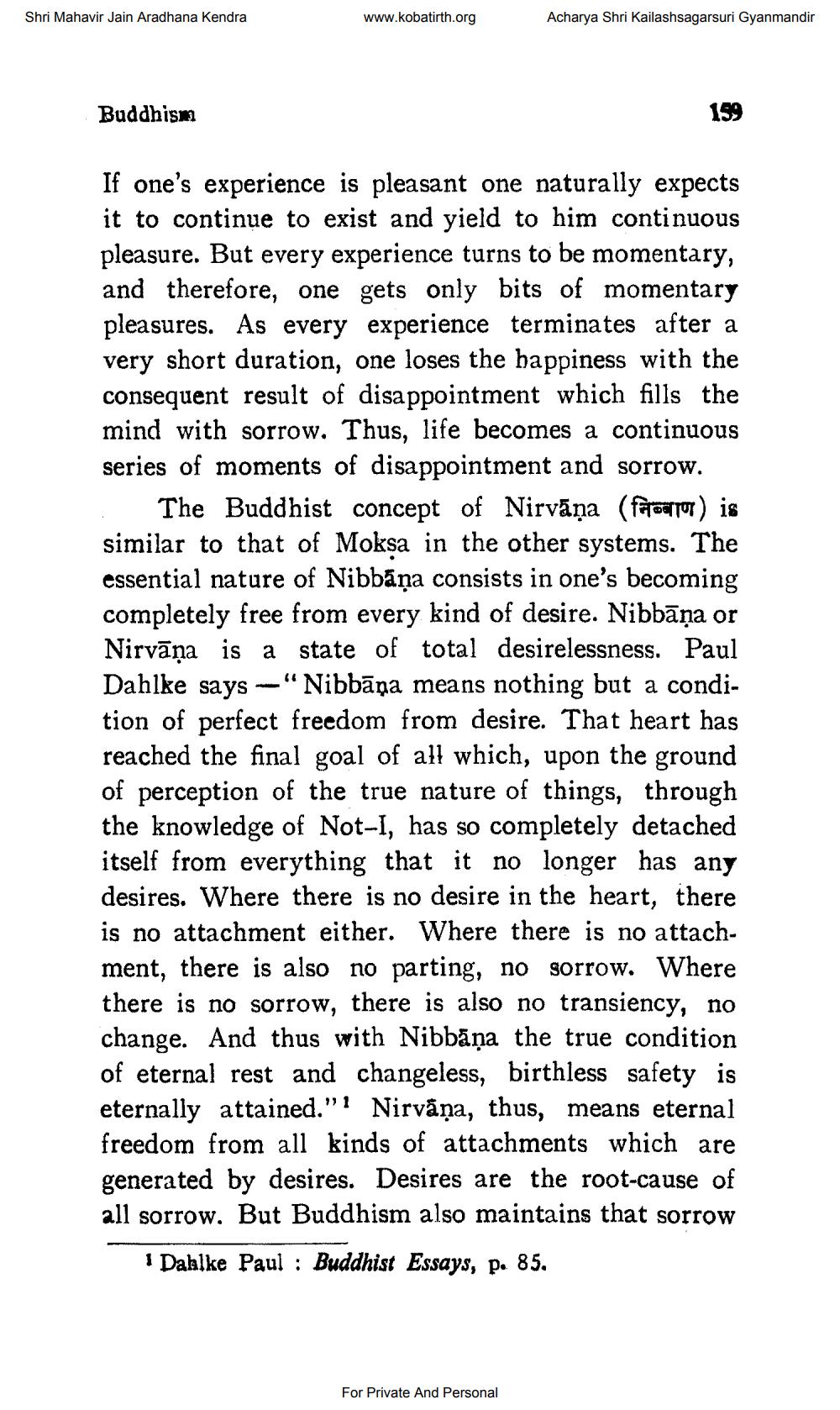________________
Shri Mahavir Jain Aradhana Kendra
www.kobatirth.org
Acharya Shri Kailashsagarsuri Gyanmandir
Buddhism
159
If one's experience is pleasant one naturally expects it to continue to exist and yield to him continuous pleasure. But every experience turns to be momentary, and therefore, one gets only bits of momentary pleasures. As every experience terminates after a very short duration, one loses the happiness with the consequent result of disappointment which fills the mind with sorrow. Thus, life becomes a continuous series of moments of disappointment and sorrow.
The Buddhist concept of Nirvāņa (foto) is similar to that of Moksa in the other systems. The essential nature of Nibbāņa consists in one's becoming completely free from every kind of desire. Nibbāņa or Nirvāṇa is a state of total desirelessness. Paul Dahlke says –“Nibbāņa means nothing but a condition of perfect freedom from desire. That heart has reached the final goal of all which, upon the ground of perception of the true nature of things, through the knowledge of Not-I, has so completely detached itself from everything that it no longer has any desires. Where there is no desire in the heart, there is no attachment either. Where there is no attachment, there is also no parting, no sorrow. Where there is no sorrow, there is also no transiency, no change. And thus with Nibbāņa the true condition of eternal rest and changeless, birthless safety is eternally attained."? Nirvana, thus, means eternal freedom from all kinds of attachments which are generated by desires. Desires are the root-cause of all sorrow. But Buddhism also maintains that sorrow
1 Dahlke Paul : Buddhist Essays, p. 85.
For Private And Personal




